
Write the Perfect Resume in 9 Simple Steps (With Examples)
Sometimes, a good resume isn’t enough. Find out how to make a perfect resume that proves you’re the best candidate for the job.

Olga Ber
Career Expert

Your resume is ready and you’re about to hit that “send” button. One last look and… you’ve realized your address is missing. Oh no! Or wait… do you actually need it at all?
In the age of digital communication, is there any reason why you should put your address on your resume?
Let’s find out.
In this article, we’ll show you:
Save hours of work and get a job-winning resume like this. Try our resume builder with 20+ resume templates and create your resume now.
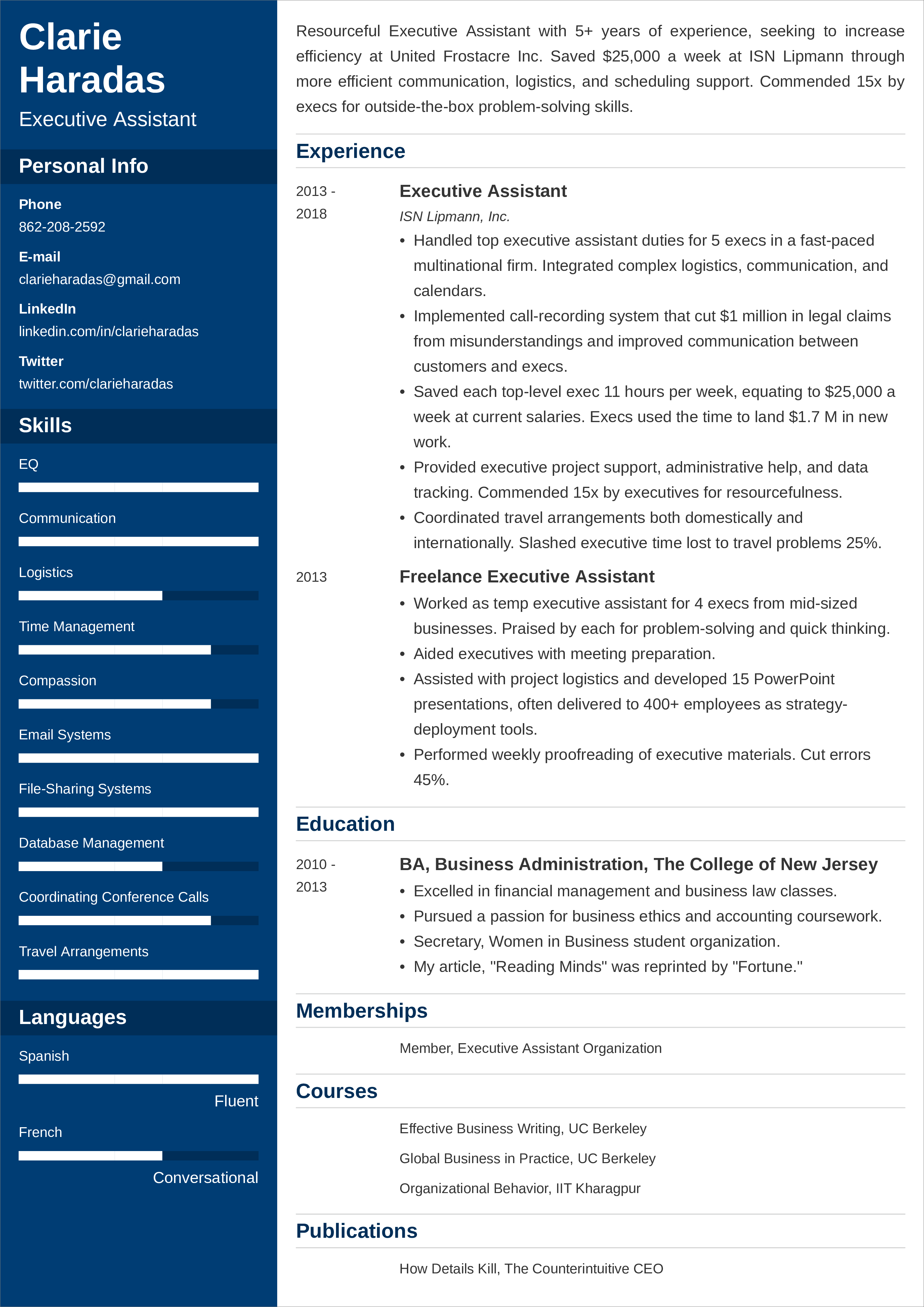
What users say about ResumeLab:
I had an interview yesterday and the first thing they said on the phone was: “Wow! I love your resume.”
Patrick
I love the variety of templates. Good job guys, keep up the good work!
Dylan
My previous resume was really weak and I used to spend hours adjusting it in Word. Now, I can introduce any changes within minutes. Absolutely wonderful!
George
Not exactly what you’re looking for? Check out our other guides:
If you are looking for some resume examples in your field check out our awesome Resume Examples to Land Any Job.
Traditionally, writing the address on the resume was necessary, as employers responded to your job application through physical mail. Nowadays, with communication fully moved online, that's not the case anymore.
Mind you, the fact that putting your address on a resume isn’t always necessary doesn’t mean that you should never put an address on a resume. It’s actually a good idea to do this when:
The question is, why would employers want to see your home address on a resume in this day and age?
First off, if the job offer asks for your address it may mean that it is a piece of information the ATS (Applicant Tracking System) the company uses requires. As simple as this. Plus, chances are the employer keeps a database where the applicant’s address may come in handy for future recruitment processes.
Second, if the employer doesn’t offer remote work and wants to be sure that only candidates from a specific area apply, they may also ask you to include your address on a resume. This will allow them to quickly filter out the applicants who do not meet this crucial requirement.
Finally, if you prefer to go old-school and send your application via snail mail, the convention is to put your address on a resume. This way the employer will be able to send you their reply via traditional post as well.
Expert Hint: The first step to writing a job-winning job application is to outline your resume before you sit down to writing it. Studies reveal that recruiters reject cluttered documents that aren’t relevant to the position.
When not to include your address on a resume?
If you’re afraid that your personal data may be mishandled, you’re under no legal obligation to put an address on a resume. Revealing your home address is always an option that you may or may not agree to.
Also, if you don’t fully trust the website, employer, or employment agency, refrain from putting the address on your resume. Just don’t do things that feel dodgy in any way.
That being said, there may be some situations where putting your address on a resume can actually help you land the job.
When do you need an address on your resume?
Imagine a situation in which you’re pursuing a position that only calls for local candidates, and it so happens you’re moving into the very location. Now think of a different situation—you’ve found a job that’s in a different state, but you’re willing to relocate.
In each of these situations, including your address in a resume should work to your advantage. You have to make it clear to the employer that even though you may not be readily available now, you’re ultimately going to end up within arm’s reach.
And this brings us smoothly into the next section—
The ResumeLab builder is more than looks. Get specific content to boost your chances of getting the job. Add job descriptions, bullet points, and skills. Easy. Improve your resume in our resume builder now.
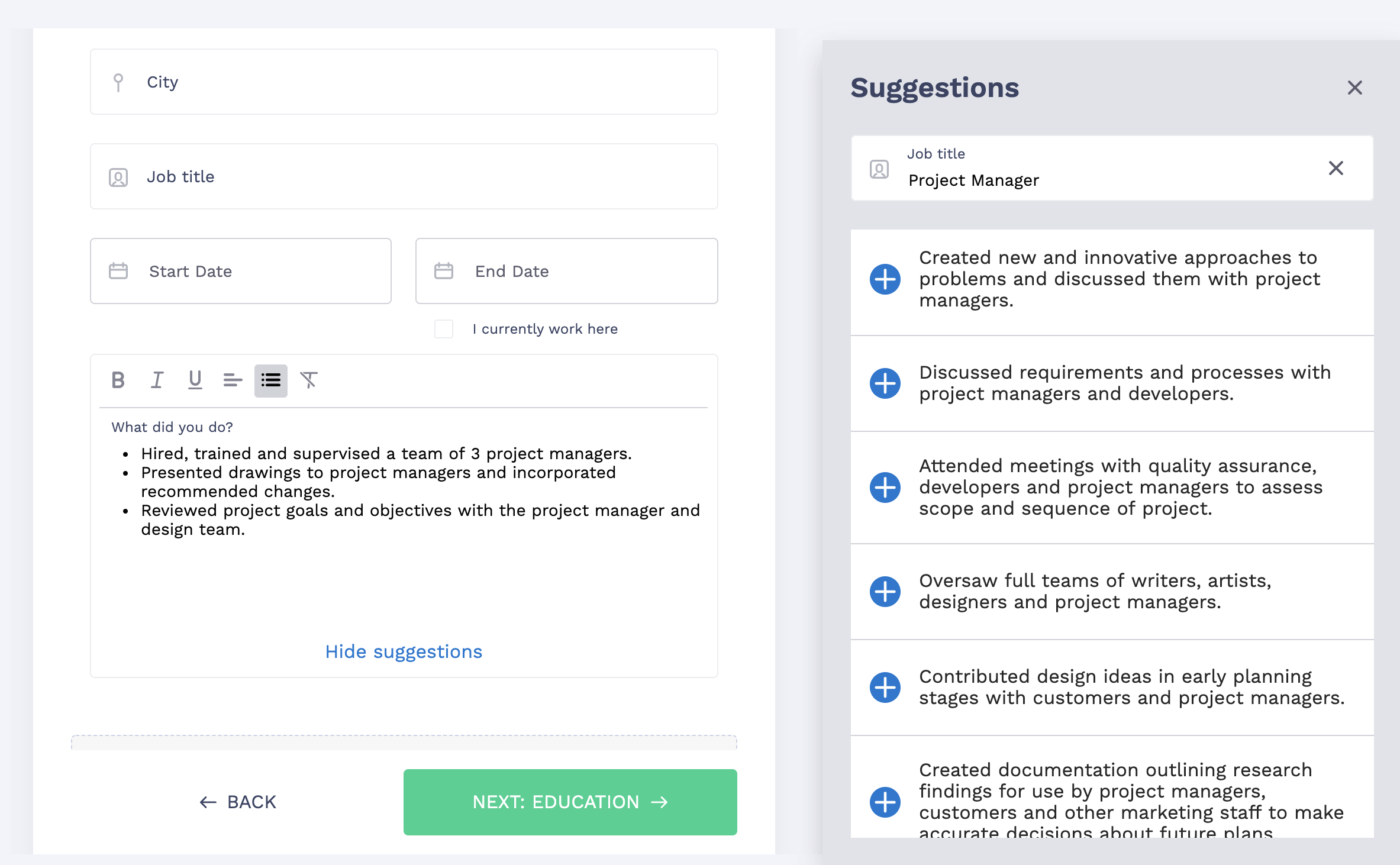
Nail it all with a splash of color, choose a clean font, and highlight your skills in just a few clicks. You're the perfect candidate, and we'll prove it. Use our resume builder now.
If you decide to include your address on a resume, make sure you do this just the right way. What does it mean? In short, the address on a resume should go right in the resume header, along with your name and other contact details.
Have a look at the examples below.
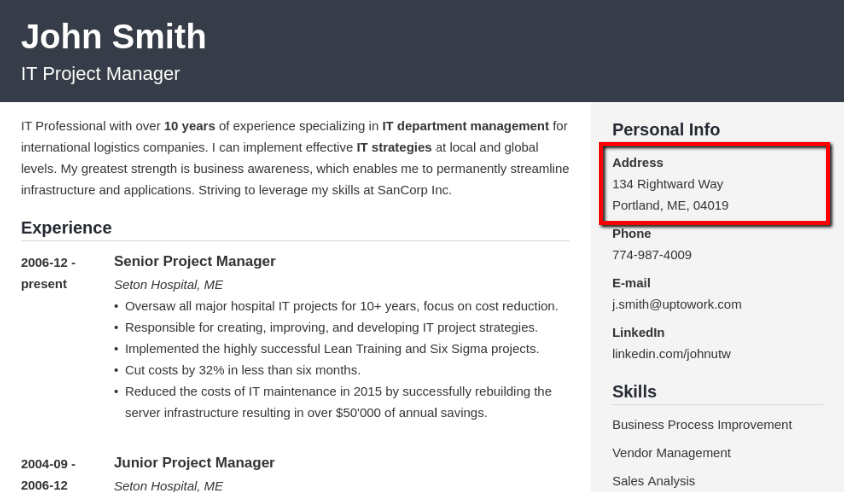
In the example above, the address is included along with the other personal information in the sidebar. Such a placement of the resume header gives the applicant more space for the resume experience section.

Just like in the example above, the resume header is located in the sidebar here to maximize the space you get for the other resume sections.
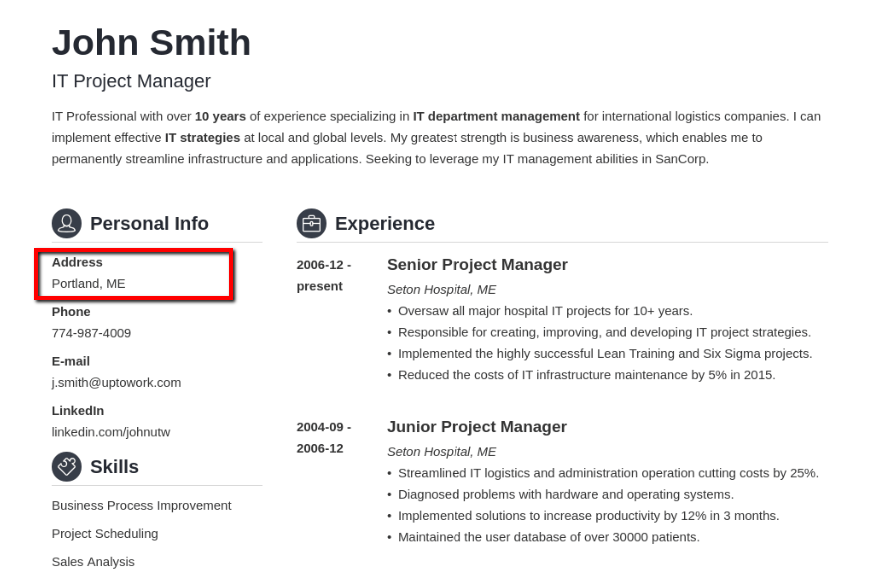
This example is different from the previous ones in terms of how much detail it presents. As you can see, the information is limited to the state and its official abbreviation. Why? We’ve already established that including address on a resume is optional.
So, if you’re not expecting the employer to be sending any physical documents to you, there’s no reason to include anything more than the state (or the city) you’re based in. Also, if the job offer doesn’t clearly state it’s targeted at the inhabitants of a particular district or street, this level of detail should be sufficient.
Feel stuck writing your resume? Or you haven’t even started yet… Don’t worry, read our comprehensive guide on how to start a resume and get inspired!
Double your impact with a matching resume and cover letter combo. Use our cover letter generator and make your application documents pop out.
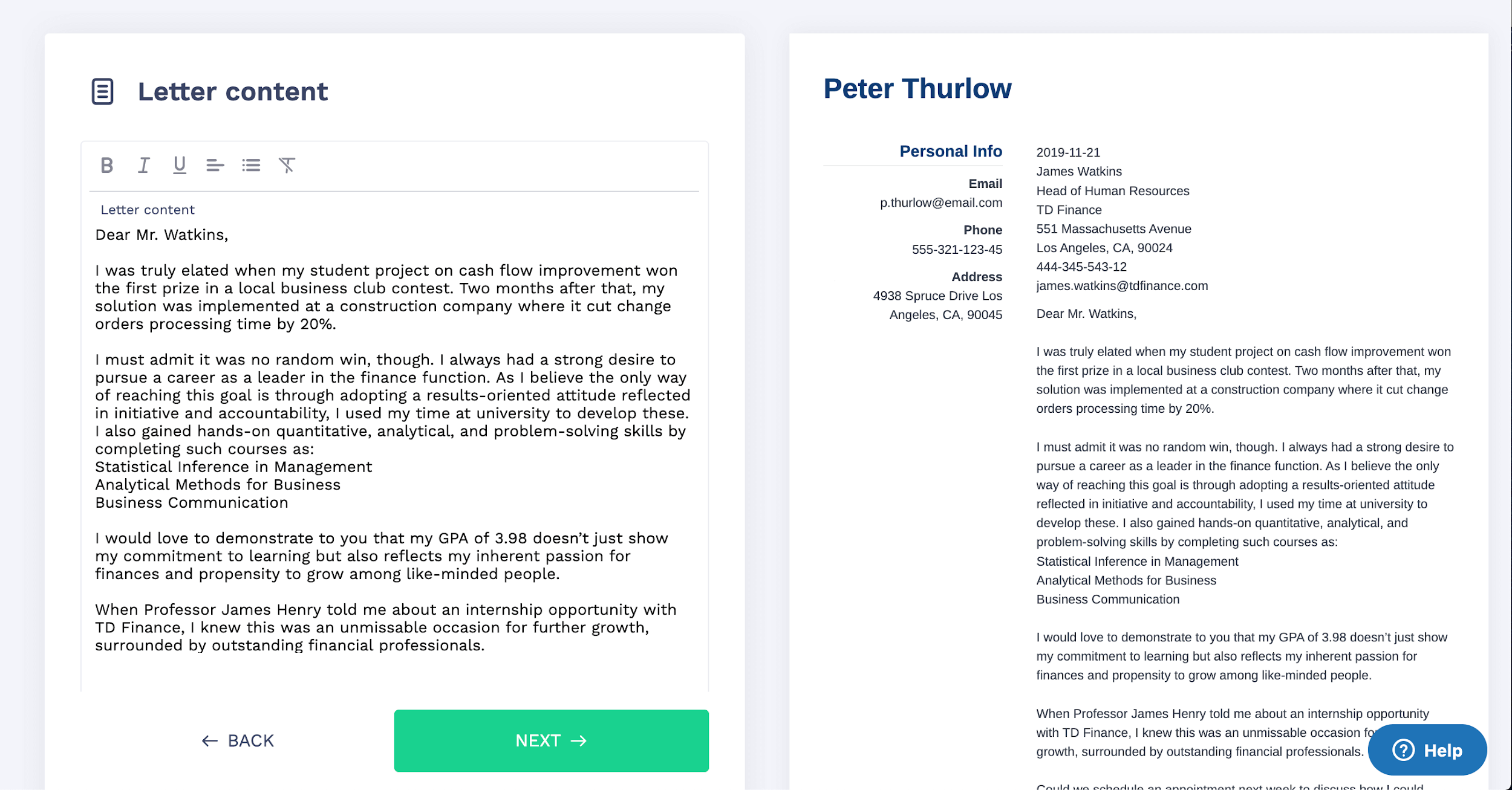
Want to try a different look? There's 21 more. A single click will give your document a total makeover. Pick a cover letter template here.
In this day and age, putting an address on a resume is optional. That being said, there are some situations in which it may turn out to be beneficial. For example, when the job offer asks you to or the employer is looking for local candidates specifically.
When you decide to include an address on your resume, place it in the resume header, together with your other personal information. Also, the address doesn’t have to be your full home address, you can limit the information you reveal to the state or city you’re based in.
How did you like our article on putting an address on a resume? Do you have any helpful tips on including an address on a resume you’d like to share? Let’s talk about it in the comments below, and, as always, thanks for reading!
At ResumeLab, quality is at the crux of our values, supporting our commitment to delivering top-notch career resources. The editorial team of career experts carefully reviews every article in accordance with editorial guidelines, ensuring the high quality and reliability of our content. We actively conduct original research, shedding light on the job market's intricacies and earning recognition from numerous influential news outlets. Our dedication to delivering expert career advice attracts millions of readers to our blog each year.

Sometimes, a good resume isn’t enough. Find out how to make a perfect resume that proves you’re the best candidate for the job.

Olga Ber
Career Expert

Job hunting can be confusing. You know you need a resume, but what is it exactly, and how to even write one? Deep breaths. Read on to learn everything you need to know.

Michael Tomaszewski, CPRW
Certified Professional Resume Writer, Career Expert

What should be the margins on a resume? How to set them right? Well, you don’t have to worry anymore. We’ve got your answers & some cool text alignment tips.

Maciej Duszynski, CPRW
Certified Professional Resume Writer, Career Expert